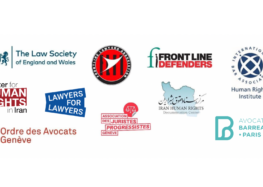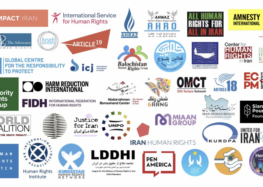650 Activists Say New Population and Family Plan Would Stifle Women
 More than 650 Iranian citizens and civil activists have issued a statement objecting to the “Comprehensive Population and Family Excellence Plan” currently on the Iranian Parliament’s agenda, arguing that the plan would place undue restrictions on women’s employment and educational opportunities.
More than 650 Iranian citizens and civil activists have issued a statement objecting to the “Comprehensive Population and Family Excellence Plan” currently on the Iranian Parliament’s agenda, arguing that the plan would place undue restrictions on women’s employment and educational opportunities.
The statement refers to the plan’s “regrettable articles” about the conditions of women, specifically in the parts pertaining to new restrictions on the use of contraceptives. It also refers to the plan as a measure that intends to further restrict women, particularly single women, from accessing employment and educational opportunities.
“Much like the other laws and resolutions passed over recent years, women are again deprived of their rights in this plan and are only seen in their reproductive position. Is there no other way to promote excellence than to deprive women of jobs, income, and education, and to limit women to the role of a procreation instrument and not as half of the population with rights?” says the statement.
“Why does excellence in every issue mean discrimination and limitation and animosity with women’s rights for the legislators?” the signatories ask in another part of their statement.
Emphasizing that depriving women of employment does not lead to their bearing more children and would only lead to an increase in both women’s and men’s presence in the unofficial and unsafe job market, the statement signatories ask Members of the Parliament to remove the plan from their agenda. The statement cautions the Members of the Parliament that approving the plan will increase gender discrimination in Iran and will be “a huge regression for women” in the laws.
The “Comprehensive Population and Family Excellence Plan,” is a proposed legislation in 50 articles aiming to encourage population growth in a departure from the current population control policies, which have been in effect for the past two decades. The plan’s main goal is to “increase the pregnancy rate to 2.5% of the quantitative population growth until the year 2025, simultaneous with qualitative improvement of the population and its stabilization by the year 2051.”
Immediately after a 2012 speech by Iran’s Supreme Leader in which he said that a continuation of the current population control policies would “lead to population aging and ultimately its reduction,” and asked government officials to discourage one- or two-child families so that Iran’s population could grow to 150 to 200 million people, the Iranian Parliament revoked the existing Family Planning Law, attempting to end Iran’s very successful population control program.
During Ahmadinejad’s last months in office, his government increased women’s maternity leave from three to nine months and provided for a two-week mandatory paternity leave for fathers of new babies.
When, immediately after taking office in 2013, Hassan Rouhani’s government revoked the previous administration’s nine-month maternity leave and the two-week paternity leave, many assumed that the population growth policies were not going to be continued. Only two months later, however, the Rouhani cabinet’s Health Minister announced that the new population growth policies hold immense importance for the future of the country.






